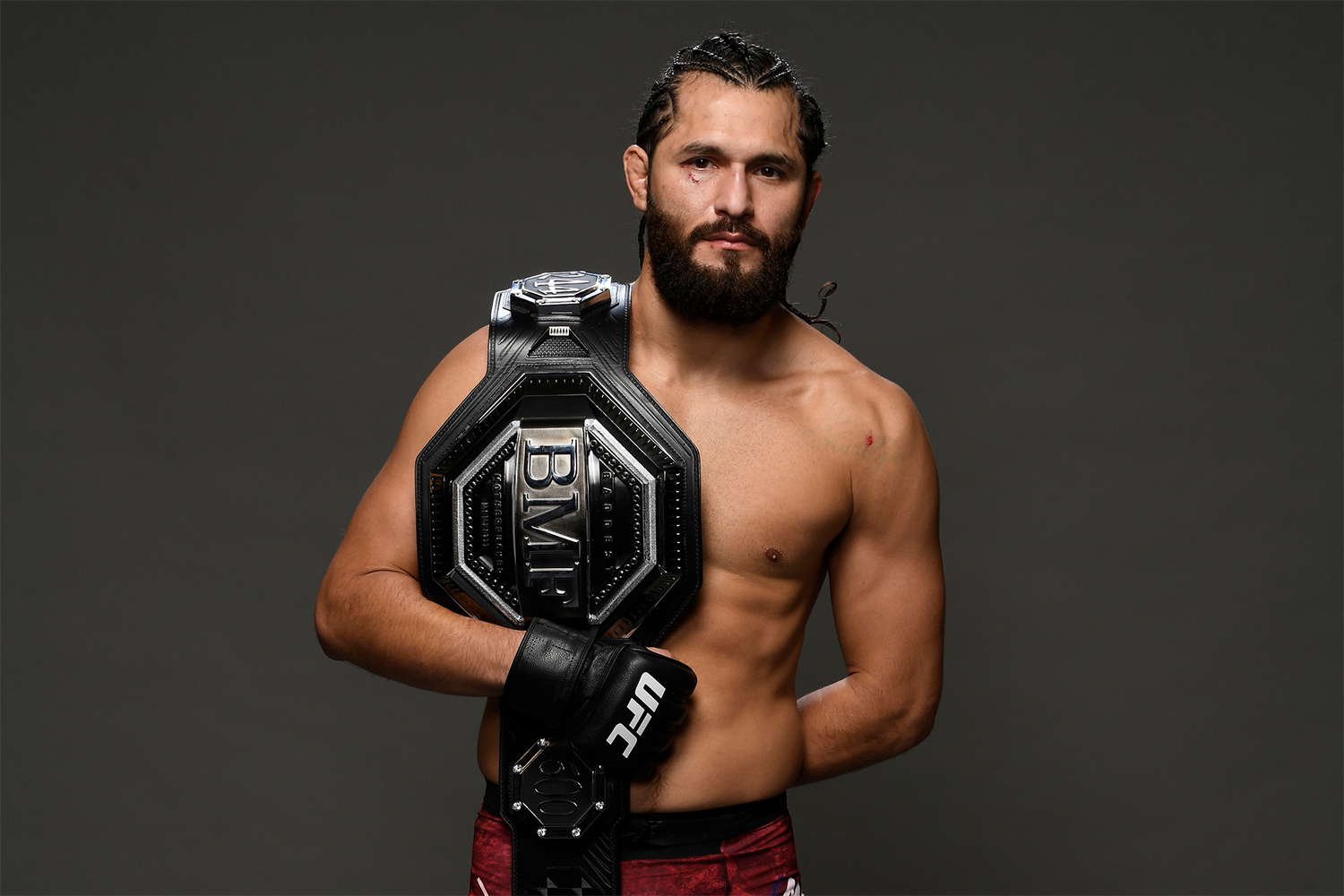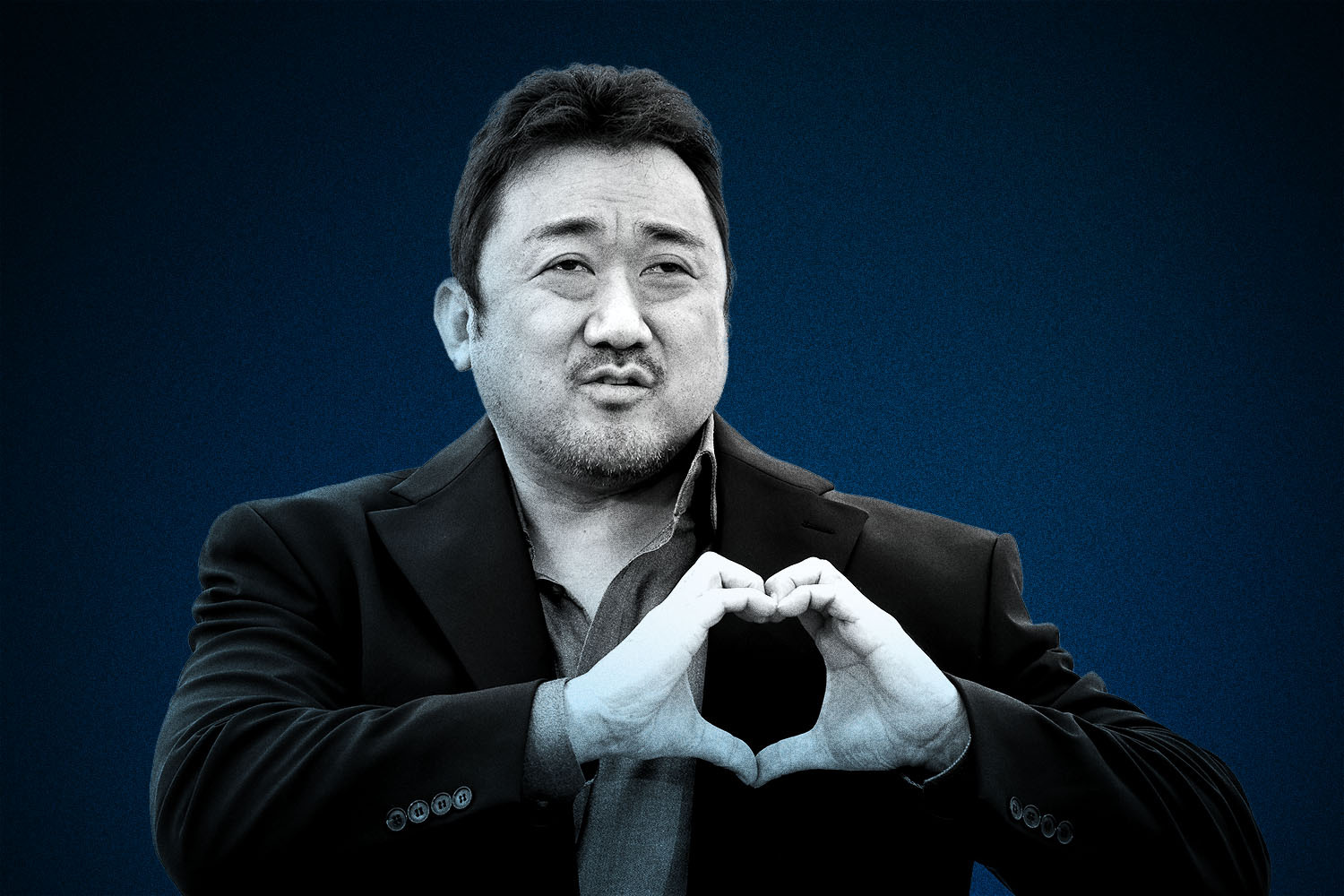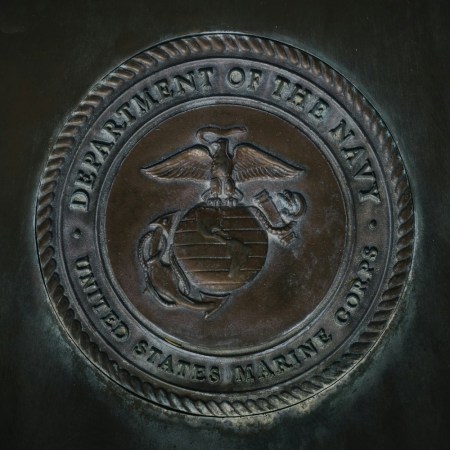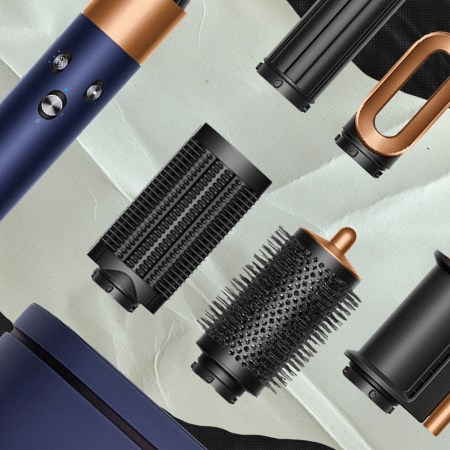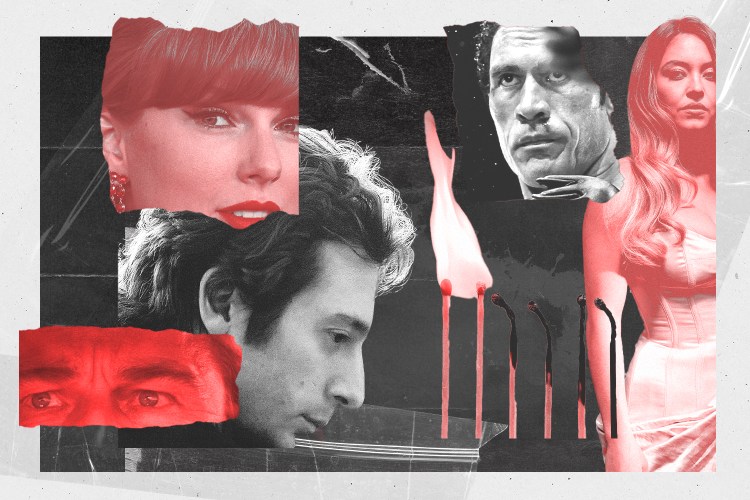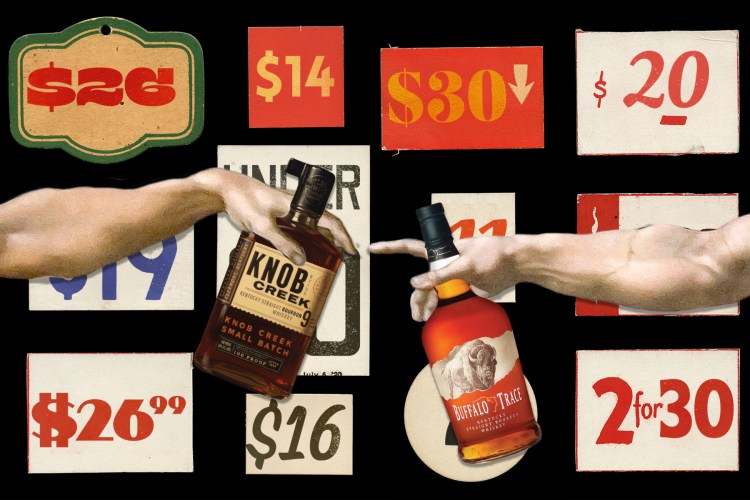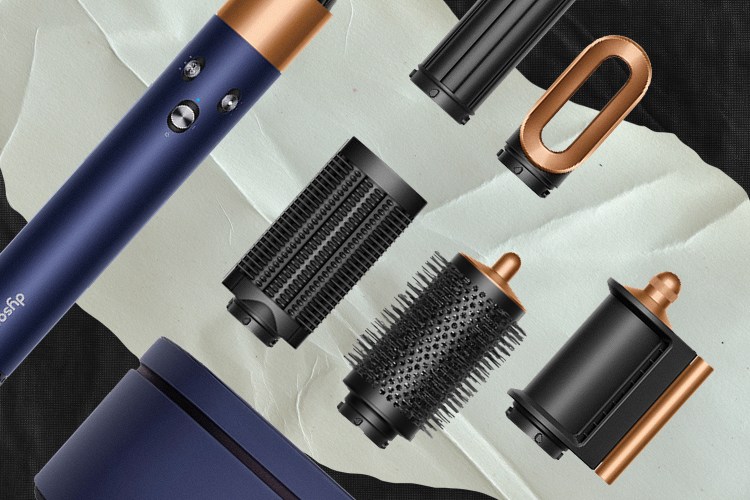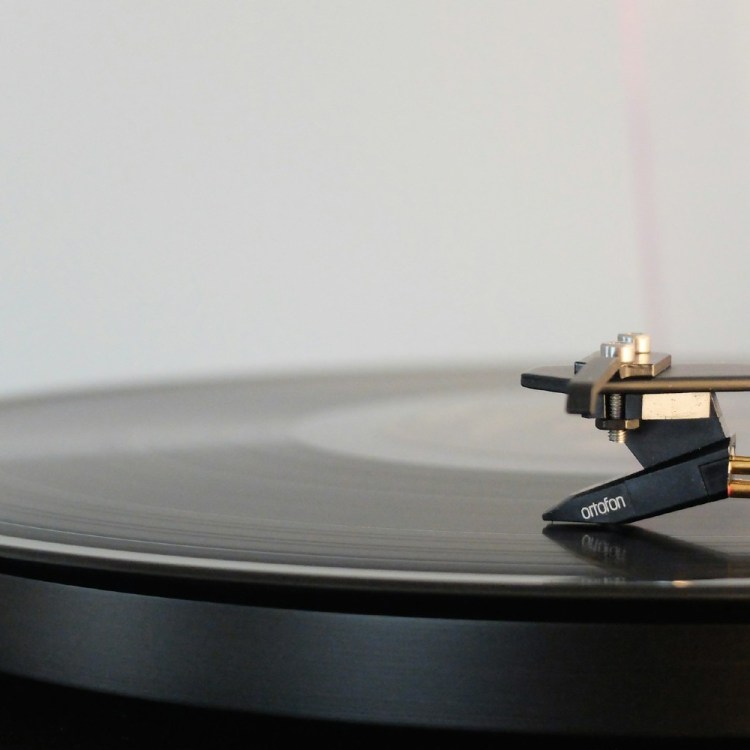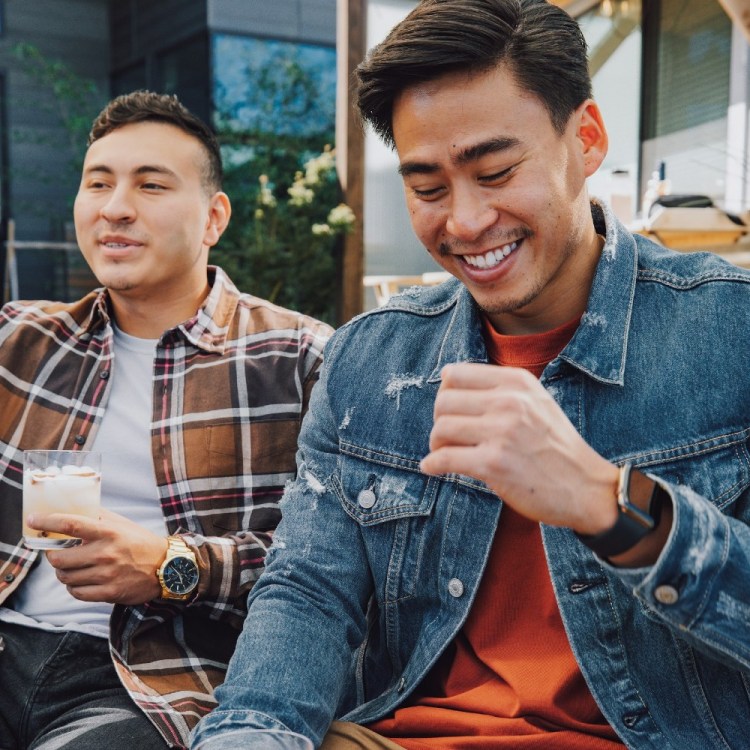Michael Bisping is one of the most recognizable names in mixed martial arts, as well as a UFC Hall of Famer. But before he claimed the respect of his colleagues, and the United Kingdom’s first UFC Championship, the brash British fighter made quite a few enemies.
Whenever professional brawlers stepped up to Bisping, they were out for blood. His matches were absolutely punishing. Over the course of his career he sustained a number of serious injuries, including a detached retina that left him clinically blind.
“They didn’t want to medically clear me to fight, but I really didn’t know anything else,” says Bisping. The former middleweight champion took matters into his own hands and somehow circumvented the system in order to continue competing in the UFC. Now with a new documentary coming out about his rise in MMA world, Bisping is finally ready to reveal what went on outside of the Octagon. “I talked a lot during my career, but at the same time I was keeping a lot of secrets.”
We sat down with Bisping to discuss discovering martial arts at an early age, getting arrested for kicking a man unconscious, finding the UFC, fighting through adversity and what it was like to enter the Octagon with one eye “clinically blind.”
InsideHook: What made this the right time to sit down for a documentary?
I didn’t have any interest in doing one when my fight career was going. But I found myself open to the idea now that I’ve hung it up. I’ve known the producers, Electric Panda, for a while, and they’ve won their fair share of awards. The other element was that I put a lot of work into keeping the problems and issues that I was dealing with throughout my career quiet. Mostly because it could’ve negatively affected some of my opportunities. I had no desire to put my business out there when I was competing, but others have told me that my stories could be inspiring to a lot of people. This movie isn’t just about fighting, it’s about overcoming obstacles and adversity.
As someone who has faced a lot of adversity head on, was there any part of making this documentary that was truly difficult?
I really struggled to talk about certain aspects of my home life, as you can see in the documentary. I never really tackled a lot of these issues. I love my parents dearly and they did their best for me, but the times were tough on them. My father was a sniper in the army, and he saw a lot of messed up things. And after that he worked at a petrol station, pumping people’s gas, and I’m sure there was a lot of bitterness as the result of that. I also saw a lot of violence growing up, things that a child shouldn’t see. I think those things helped bring me to fighting as a way of life. I was drawn to it, and didn’t think it was that strange.
Clearly there was a predilection for fighting that started in your adolescence. When did you notice that you not only wanted to scrap, but were actually good at it?
I was a huge fan of the Rocky movies and all of those ninja movies from the ’80s. My brother Conrad and I would get into these play fights that would turn into actual fights after each movie. He started to take Japanese jujitsu, and being the younger brother I decided to follow along. I loved it straight away. I became obsessed with it. I don’t think I ever lost a tournament in those early years. I was growing up in this small town, seeing my name in the newspaper. I realized very early in my life that I could fight. I had a natural ability.
I wasn’t a popular kid growing up, but I could brawl and it quickly became my identity. These snobby kids would pick on me for my family not having enough, with my shoes falling apart and clothing in tatters. I finally decided I wasn’t going to take it anymore. I told myself the next person that said something I would punch in the face, and I did. I started punching a lot of people in the face. I went from not being popular to being everyone’s buddy and enforcer. I leaned into the lifestyle even more after that, which of course was wrong, but it was all I knew. I started to feel the consequences of that life, getting into bigger fights and even getting arrested. Eventually, I hit rock bottom.
Do you have a particular moment that you recall as being that rock bottom?
I was out with the boys on a typical Friday night, excited to have a few beers. My crew were great guys, but they weren’t the kind to keep to themselves. They instigated things from time to time. This night I walked into the restroom and my buddy was on the floor covered with blood with two guys kicking the crap out of him. I was about to stop it and I got punched in the back of the head as well. Before you knew it the fight had poured out into the street, this guy grabs this girl in a headlock and starts talking trash to me. I could see his friend in my peripheral vision, creeping up on me to the left. Once he got close enough I kicked him in the head, which may not have been the best move because I had that marital arts training and put him down quickly. I knocked him unconscious. People knew me in the town and a policeman got out of an unmarked car to tell me he had seen everything and there was no reason to try running. I ran anyways. That next morning they were at my door and I ended up going to prison for it, because it wasn’t my first time. My wife visited me while I was locked up and that made me feel sick to my stomach because she was pregnant with our child. I had to look at myself and make a decision to do something different with my life, something better.
What were the first steps that you took?
I was doing a string of dead-end jobs at the time, one right after the other. My wife was a dental nurse and I was working in factories. I asked myself what I was capable off, and it kept coming back to martial arts and my fighting ability. I decided to take that natural ability and make something good out of it. I knew a lot of people were talking shit behind my back, wondering why I was risking everything when I had kids. I was already broke and now I was quitting work to become a professional fighter. This was back in 2003 and mixed martial arts wasn’t close to where it is now. My first thought was to be a boxer, but when I learned about the UFC that plan changed. I dedicated myself fully to that pursuit with the support of my wife, and I kept climbing up the ranks.
Looking back to your early fighting days, you were already in great shape. How did you get to that level of fitness?
I always tried to be in the best shape possible, because no matter how good you are at fighting, you get tired. And when you get tired, your skill goes out the window. You could be the best kickboxer in the world, but if you can’t breathe you are done. I learned that the hard way, back when I was doing kickboxing and jiujitsu matches. So I would always push myself to the absolute limit at every single session. I continued that pattern from the UFC Contender to when I was headlining UFC cards. The goal post always moves further down the road, and means you need to go even harder each time.
You had some epic battles and were victorious often, but there were a few major losses like at UFC 100 . How did you bounce back from those mentally and physically?
I know it’s a cliche but you truly do learn from your losses more than your victories. That is when you really have to sit down and address what you are doing wrong. I was knocked out cold at UFC 100 by Dan Henderson, and it was the biggest event that they had ever done. I could sense everybody laughing at me, because I liked to run my mouth off, especially when it came time to sell the fight. I was victim to a lot of torment online too. On the physical side, that fight detached my retina, and they weren’t going to medically clear me to fight again. I had no choice but to keep fighting, because it was all I knew. If I needed to cheat on some eye exam to get back in the Octagon then I was bloody well going to do it.
I never really processed that loss. I just put a smile on my face and acted like everything was good. My friends and family had flown into England to watch the match. I went to the hospital, got checked out and immediately went to go celebrate with all of them. But that defeat and the trauma involved with getting hit like that was still there. I was competing for the world championship and got put down. It was awhile later, when I was watching one of the Rocky movies that I really let it out, I just broke down. Sylvester Stallone does a great job at portraying the emotions that fighters go through. It just struck a chord with me.
Once you got the medical clearance to fight, whether you circumvented the system or not, how did you deal with the disadvantage that came with being clinically blind?
The main setback was that I had no depth perception. I reach for a coffee cup now and I can’t really judge the distance on sight. As you can imagine, fighting like that is very, very challenging. Because of the issues I had with the distance, I used my jab a lot less. I had a great coach in Jason Parillo; the beginning of fights and sparring sessions I would be hitting open air, until I made contact the first time and then I was ready to go. During big fights that was a very stressful situation, because I wouldn’t know how to get them with the jab. I had to compensate my ability in other ways, which started with getting in the best shape possible. I needed my other skills to be as good as they could be, from ground game to boxing. The mind is the most powerful tool. The mind is what you need to conquer first to prepare for a fight. My coach was great about getting me mentally ready.
These days the fighters have a lot of tools at their disposal when it comes to fitness and recovery. There are places like the UFC Performance Institute developed to better prepare them. What did recovery look like back when you started fighting?
I wish I had implemented more recovery and training when I was competing because my body is paying the price now. As you get older, it’s about training smarter and not harder. I stretch a lot more, and I wish I had when I was first coming up. Back when I was younger I burned the candle at both ends and I overtrained for every single fight that I took. I still enjoy my training sessions these days but they’re much more well rounded.
It’s clear you are still training and staying in shape, do you ever have a desire to jump back into the Octagon and compete again?
Sometimes! I will occasionally be struck with the impulse to compete again, but it doesn’t last for very long. The fact that I am working as a commentator for the UFC, and therefore still so close to the action, means that I don’t have to miss it really. If I didn’t get into the Apex or travel to London with the crew I would miss it like crazy. I still hit the punching bag at the gym and in my mind I still have it. But really, that ship has sailed. I would do one more if I could, but I can’t.
If you were to step back in, do you know who you might want to fight?
I was matched up with Robert Whittaker back in the day and that fight never got to happen because I needed to get arm surgery. Yoel Romero was another one that I was linked to a few times. Rich Franklin was someone that I always wanted to fight, mostly because I respected him so much. Of course I have to mention England’s own Darren Till, who I am great friends with. That doesn’t change the fact that I would kick his ass.
Speaking of countries, what does it feel like to look back now and know that you brought a new kind of championship to Britain when you won the UFC belt?
I was honored truly. I don’t like to pass over the fact that there were great martial artists out of Britain before me, but I do understand the importance of me being the first Brit to headline a main event in the UFC and to bring home a championship. I am proud to support my country and my nation, because I got an unbelievable amount of support from them. I never took it for granted. I used to be a bit reckless back in the day, and said some dumb shit.
It seems like you have mellowed out a bit since those days.
I feel like the brawler part of me doesn’t exist in a lot of ways. I was recently down in New Orleans and was assaulted by this jerk out of nowhere. I was on Bourbon Street with my family and these people were playing on these drums. I pulled my phone out because I wanted to grab a little Instagram story, and the guy came up to me to tell me I couldn’t film there. I didn’t really understand what he was doing but I told him it was a public place so I was going to keep recording it, and then he squared up with me. I told him to do his worst and he punched me right in the face.
That’s crazy. How did it play out after that?
I am not trying to sound tough, but it was the softest punch that I’ve ever felt in my life. I was there with my wife and my two kids. I had no interest in rolling around on the pavement with some asshole who wanted to act tough. I just started laughing my head off. I told him how unimpressed I was, got my family together, and we walked away. Now if that had happened ten years ago, the situation would’ve played out very differently. I probably would have ended up in jail again. It’s wild the journey that this life takes you on.
The Charge will help you move better, think clearer and stay in the game longer. Subscribe to our wellness newsletter today.


